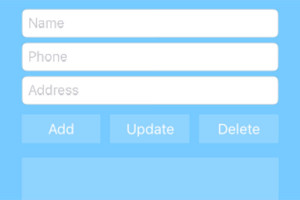Learn Angular: The Collection, Released June 2018
Angular is not just a framework, but rather a platform that empowers developers to build applications for the web, mobile, and the desktop.

This collection is a set of books aimed at getting you up to speed with Angular. It contains:
- Learn Angular: Your First Week, a collection of articles introducing Angular
- Learn Angular: Build a Todo App, an in-depth project tutorial that builds a complete Angular application from start to finish
- Learn Angular: 4 Angular Projects presents four practical Angular projects
- Learn Angular: Related Tools & Skills contains a collection of articles outlining essential tools and skills that every modern JavaScript developer should know.
This book is for all front-end developers who want to become proficient with Angular and its related tools. You’ll need to be familiar with HTML and CSS and have a reasonable level of understanding of JavaScript in order to follow the discussion.
Where To Buy
Get the collection on Amazon or on SitePoint Premium – all our books and courses for only $9 a month.
Frequently Asked Questions about Learning Angular
What are the prerequisites for learning Angular?
Before you start learning Angular, it’s beneficial to have a basic understanding of web development concepts such as HTML, CSS, and JavaScript. Familiarity with TypeScript can also be advantageous as Angular is built on it. However, even if you’re not well-versed in these languages, Angular’s comprehensive documentation and community support can help you get started.
How can I set up my development environment for Angular?
To set up your development environment for Angular, you’ll need Node.js and npm (Node Package Manager) installed on your computer. You can download both from the official Node.js website. Once installed, you can use npm to install the Angular CLI (Command Line Interface), which is a powerful tool that helps you create and manage Angular applications.
What are some beginner-friendly Angular projects I can try?
There are several beginner-friendly Angular projects you can try to practice your skills. These include creating a simple calculator, a to-do list application, or a weather app. These projects will help you understand Angular’s basic concepts like components, modules, and services.
How can I debug my Angular application?
Angular provides several tools for debugging. One of the most common methods is using the browser’s developer tools. You can also use Angular’s built-in debugger called Augury, which provides a visual representation of your application’s component tree and allows you to inspect properties and events.
What are some advanced Angular topics I should learn?
Once you’re comfortable with the basics, you can explore advanced Angular topics like routing and navigation, forms, dependency injection, and testing. You can also learn about Angular’s change detection mechanism and how to optimize performance.
How can I keep up with Angular updates?
Angular has a regular release schedule, with major updates released every six months. You can keep up with these updates by following the official Angular blog or subscribing to Angular newsletters. It’s also a good idea to join Angular communities on platforms like Reddit or Stack Overflow.
What are some common challenges when learning Angular and how can I overcome them?
Some common challenges when learning Angular include understanding its complex syntax, dealing with asynchronous programming, and managing state. To overcome these challenges, practice is key. Work on projects, read Angular’s documentation, and don’t hesitate to ask for help from the community.
Can I use Angular for mobile app development?
Yes, Angular can be used for mobile app development. In fact, Angular is part of the MEAN stack (MongoDB, Express.js, Angular, Node.js), which is a popular choice for full-stack JavaScript development. For mobile-specific development, you can use Ionic, a framework that integrates well with Angular.
How can I test my Angular application?
Angular provides testing frameworks like Jasmine for unit testing and Protractor for end-to-end testing. These tools, along with Angular’s testing utilities, make it easier to write and run tests for your application.
What resources are available for learning Angular?
There are numerous resources available for learning Angular. These include online tutorials, video courses, books, and documentation. You can also learn from community resources like blogs, forums, and Stack Overflow.
Joel Falconer is a technical content strategist. He has been managing editor at SitePoint, AppStorm, DesignCrowd, and Envato, and features editor at The Next Web.






